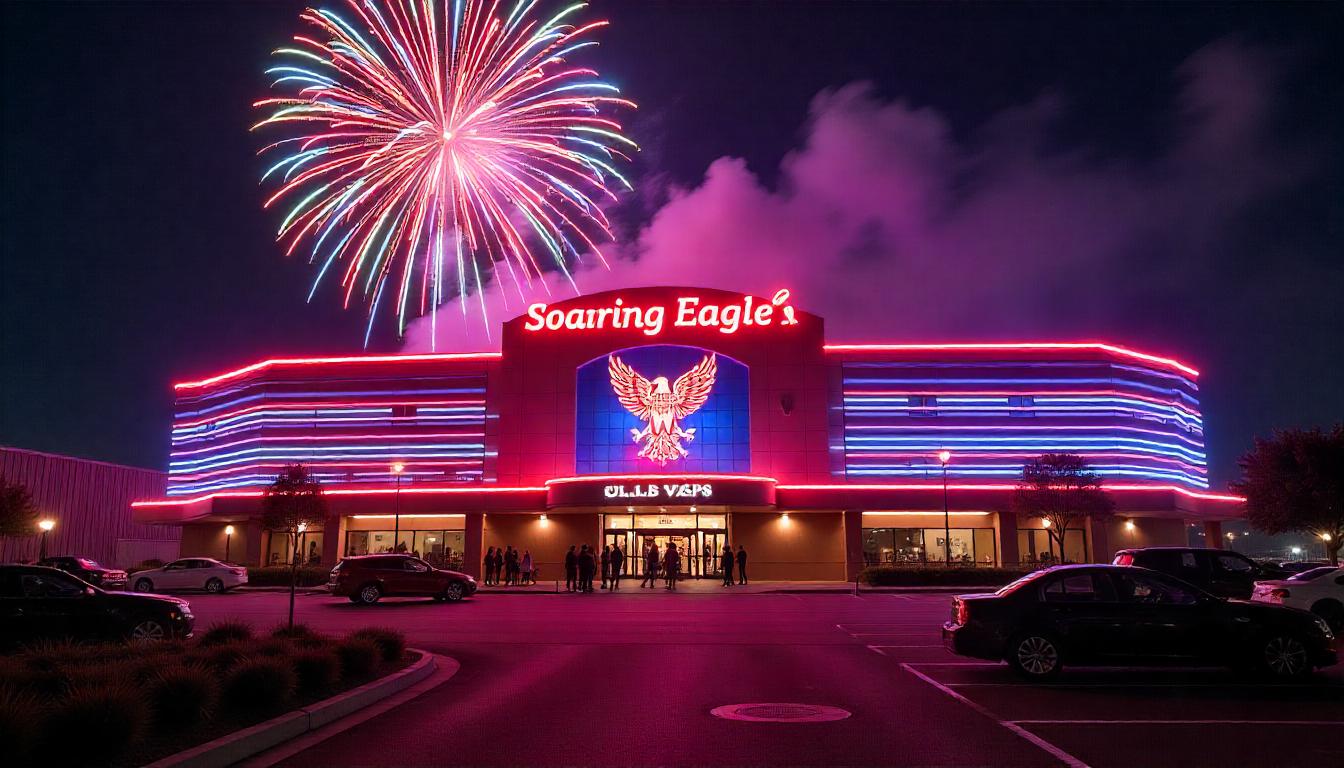The topic of Native American casinos often sparks lively discussions and debates. With a blend of rich history, legal nuances, and economic implications, it’s no wonder that many people are curious about why Native Americans own casinos in the first place. The conversation has even made its way to Reddit, where users share their perspectives on this complex issue.
From historical injustices to modern-day opportunities for self-sufficiency, the narrative surrounding these establishments is multifaceted. As we dive into this topic, we’ll explore not only the origins and legal framework behind Native American casinos but also the impact they have on communities today. So grab your favorite beverage and get ready to unravel the story behind these vibrant gaming venues!
The History of Native American Casinos
The history of Native American casinos is deeply intertwined with the struggle for sovereignty and economic independence. In the 1970s, a pivotal shift occurred when tribes began to challenge state laws prohibiting gambling on their lands.
This movement gained momentum after landmark court cases, like the Cabazon Band of Mission Indians v. California in 1987. The ruling affirmed that tribal governments had the right to operate gaming establishments free from state interference.
By the early 1990s, the Indian Gaming Regulatory Act was enacted. This legislation provided a framework for regulating tribal gaming while recognizing tribes’ rights to self-determination.
As a result, many tribes launched casinos as a means of funding essential services and revitalizing their communities. The expansion of these enterprises has since transformed both local economies and perceptions about Native American resilience and entrepreneurship.
Legal Basis for Native American Casinos
The legal framework for Native American casinos is rooted in a complex mix of federal law, tribal sovereignty, and negotiations with state governments. The Indian Gaming Regulatory Act (IGRA) of 1988 is the cornerstone of this system. It established guidelines for gaming on tribal lands.
Under IGRA, tribes can operate casinos if they engage in compacts with state authorities. These agreements outline the scope of gaming activities permitted and help regulate operations.
Tribal sovereignty plays a crucial role as well. Native American tribes are recognized as separate nations within U.
S. borders, granting them the right to govern their own affairs without excessive interference from state laws.
This unique status enables tribes to create economic opportunities through casino ownership while navigating various regulatory landscapes tailored to their specific needs and cultural values.
Economic Benefits of Native American Casinos
Native American casinos have become vital economic engines for many tribes. They generate significant revenue, often exceeding millions of dollars annually. This income supports various community programs and services that directly improve the quality of life for tribal members.
Job creation is another crucial benefit. Casinos employ thousands, providing stable jobs with competitive wages. These positions range from hospitality roles to management, fostering a skilled workforce within the community.
Moreover, casino revenues fund education initiatives and healthcare services on reservations. Tribes can invest in infrastructure improvements as well, enhancing transportation and housing options.
The impact extends beyond tribal borders too; local economies thrive as tourism increases around these entertainment venues. Nearby businesses often see a boost in sales due to increased foot traffic generated by casino visitors.
This financial uplift allows tribes greater autonomy and strengthens their cultural preservation efforts through funding traditional practices and language revitalization programs.
Criticisms and Controversies Surrounding Native American Casinos
Critics argue that Native American casinos can perpetuate stereotypes about Indigenous peoples. Some feel these establishments reinforce the notion of gambling as a primary source of income for tribes.
There are also concerns regarding the management of casino revenues. Questions arise over transparency and whether profits truly benefit all members of a tribe or just a select few.
Moreover, the environmental impact cannot be ignored. Expanding casino operations often leads to significant land development, potentially disrupting local ecosystems.
Additionally, some communities near tribal casinos voice worries about increased crime rates and social issues linked to gambling addiction. These concerns highlight complex dynamics between economic growth and community welfare.
Debates around taxation further complicate matters. While Native American casinos operate under different regulations than state-run ones, critics call for more equitable tax contributions from these enterprises.
Reddit Users’ Perspectives on Why Native Americans Own Casinos
Reddit users bring a diverse range of opinions to the discussion on why Native Americans own casinos. Many highlight that this ownership is rooted in treaties and legal frameworks established over centuries. These agreements often grant tribes the right to self-governance, which includes operating businesses like casinos.
Some Redditors emphasize the economic empowerment aspect. They argue that casinos provide much-needed revenue for communities lacking resources and job opportunities. This financial support can lead to better education, healthcare, and infrastructure.
However, not all perspectives are positive. Some users express concern about gambling addiction and its social consequences within tribal nations.
The debate also touches on sovereignty issues, with many asserting that owning casinos allows tribes to assert their rights against state regulations. Each viewpoint adds a layer of complexity to understanding this multifaceted topic in contemporary society.
Impact of Casino Ownership on Native American Communities
Casino ownership has transformed many Native American communities. It provides a significant source of revenue that can be funneled into essential services. These include healthcare, education, and infrastructure improvements.
With the influx of funds, tribes can invest in their social programs. This leads to better housing options and job creation for community members. Many tribes have seen economic growth as a direct result of their casinos.
However, while there are benefits, challenges remain. Some communities struggle with dependence on casino income. This reliance may overshadow diverse development opportunities beyond gaming.
Additionally, not all tribal members benefit equally from casino profits. Disparities exist within communities regarding wealth distribution and access to jobs created by these enterprises.
The impact of casino ownership is complex and multifaceted—it shapes both opportunity and challenge in Native American life today.
Future of Native American Casinos
The future of Native American casinos is poised for significant evolution. As technology advances, these gaming establishments are increasingly integrating digital platforms. Online gambling could provide new revenue streams and attract younger audiences.
Sustainability also plays a crucial role in upcoming developments. Many tribes are focusing on eco-friendly practices within their operations. This shift not only benefits the environment but enhances community relations.
Moreover, partnerships with major gaming companies may increase as competition intensifies. Collaborations can enhance offerings and improve customer experiences, setting higher standards across the industry.
Cultural representation is another vital aspect moving forward. Casinos will likely continue to embrace indigenous heritage in their branding and operations, creating spaces that honor traditions while attracting diverse visitors.
Navigating regulatory changes will be essential too. Tribes must adapt to evolving laws surrounding gambling at both state and federal levels, ensuring they remain compliant while maximizing opportunities.
Conclusion
The topic of why Native Americans own casinos is multifaceted and deeply rooted in history, legality, and culture. The emergence of Native American casinos has transformed the economic landscape for many tribes across the United States.
Understanding their historical context reveals a story of resilience and adaptation. Legal frameworks established through treaties and legislation have empowered tribal nations to operate gaming establishments on their lands.
These casinos provide significant financial benefits that help support education, healthcare, infrastructure, and cultural initiatives within communities. However, the industry is not without its criticisms; issues related to addiction, exploitation concerns, and community divisions are part of ongoing discussions.
Reddit’s diverse user base brings a variety of perspectives on whether casino ownership is beneficial or detrimental to Native communities. Conversations often highlight both pride in self-sufficiency as well as caution about potential societal impacts.
As we look ahead, it’s clear that the future holds both opportunities and challenges for Native American casinos. These establishments will likely continue to evolve in response to changing regulations, market demands, and community needs.
This complex narrative underscores an essential aspect of modern tribal sovereignty while inviting continued dialogue among all stakeholders involved.









